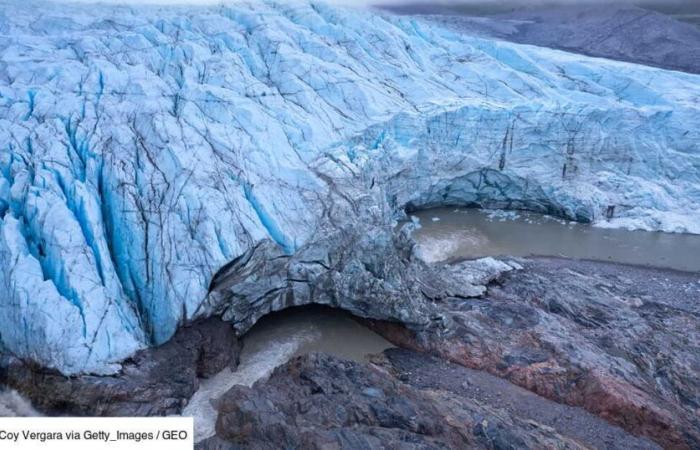One study after another, the slowing of the Atlantic Meridional Overturning Circulation (AMOC), a huge system of interconnected ocean currents, is seeing a scientific consensus begin to emerge on the subject: “Le Gulf Stream [faisant partie de ce système] giveworrying signs of collapse“ (July 2023), “Imminent risk: the AMOC, the Atlantic current vital to the global climate, close to the tipping point“ (avril 2024)…
Be careful, however, when faced with announcements evoking close time horizons, which “contribute in no way to raising public awareness, and even less to influencing public policies in favor of climate solutions”had warned Andrew Weaver, professor at the University of Victoria (The Conversation, August 2023).
In Svalbard, Greenpeace travels back in time
Latest episode to date, a publication in the journal Nature Geoscience on November 18, 2024, simultaneously relayed on The Conversation by its two authors, post-doctoral researchers at the University of New South Wales (UNSW) in Australia. According to them, meltwater from the Greenland ice cap and Canadian glaciers would be the “missing piece of the climate puzzle.”
5.9 trillion tons of ice
In fact, high temperatures are melting both Arctic sea ice, glaciers and the Greenland ice sheet – the latter region having lost 5.9 trillion tonnes (gigatons) of ice since 2002.
However, meltwater flowing into the subarctic ocean is lighter than salty seawater. This process therefore reduces both the southward flow of cold, deep Atlantic waters, as well as the northward return of warmer surface waters through the Gulf Stream.
So when the study authors included this meltwater in their simulations using an Earth system model and a high-resolution ocean model, the slowdown in ocean circulation then “reflected reality”confirming that AMOC has been slowing since the mid-20th century.
Earlier than expected?
Furthermore, this research would also provide a “glimpse of the future”since according to the results obtained, in the hypothesis of global warming of 2 degrees Celsius, the AMOC would indeed risk weakening “by a third party” compared to what it was 70 years ago.
This would lead to significant changes to climate and ecosystems, including more rapid warming in the Southern Hemisphere, harsher winters in Europe, and a weakening of the Northern Hemisphere's tropical monsoons.list the authors.
“Our simulations also show that these changes are likely to occur much sooner than others have suspected.”they add. Thus, if additional meltwater is taken into account in the projections, the overturning circulation could weaken according to them by 30% by 2040, i.e. “20 years earlier than initial forecasts.”
This week, in Baku, Azerbaijan where COP29 is being held, the “discussions stall” and the pressure builds to “save the climate conference”inform our colleagues in Le Monde (November 19)…






